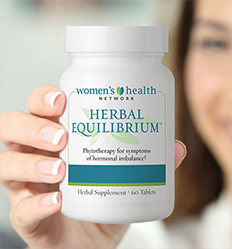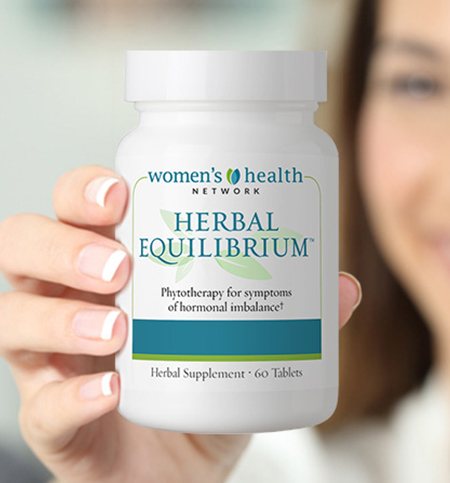Authored by Dr. Sarika Arora, MD
You may be mystified when you notice what turn out to be the first signs of early menopause: irregular periods, weight gain, fatigue, changes to libido or hot flashes. You think, what’s going on? I’m only in my 40s — it must be the beginning of perimenopause.

But when your periods stop — and don’t come back — you may find yourself in early menopause.
Early menopause occurs between the ages of 40 and 45 when a woman experiences menopausal symptoms and then goes a full 12 months without a period. Many women at this age feel too young for menopause and the idea of losing their reproductive ability can be a real jolt.
Early menopause is often unexpected and unwanted, and it can bring on very difficult symptoms. Even though this change may be hard to accept at first, once you understand what’s going on, you can take natural steps to feel good and support your overall health.
Signs of early menopause
If you’ve noticed changes in your body, they could be early signs of menopause, like these:
- Hot flashes and/or night sweats
- Insomnia
- Fatigue, lack of energy
- Moodiness or irritability
- Poor memory/fuzzy thinking
- Weight gain, especially around the middle
- Low libido
- Vaginal dryness
- Irregular periods before menstruation stops completely
- Palpitations
- Urinary incontinence, frequency or urgency
- Urinary tract infections
- Skin changes (increased wrinkling or dryness)
- Hair issues
These symptoms are very confusing when they hit because early menopause is probably the last thing on your mind. But other shifts happen inside your body that you can’t feel, including bone loss, which often accelerates during the menopause transition.
Bone loss that starts with the onset of early menopause is a real concern. Your doctor can check your bone density with an n-telopeptide urine test that measures bone turnover. But even if tests confirm increased bone turnover, there is plenty you can do naturally to save your bones, and your body, in early menopause and beyond.
But first, you have to know what you’re dealing with.

How to know if you’re in early menopause
Even though the symptoms of each are very similar, early menopause, perimenopause and menopause are different events for your body.
- Early menopause: occurs at age 40-45 and often announces itself with surprising, and sometimes scary, symptoms. Menstruation stops completely.
- Perimenopause: can start as early as 35 but usually begins in the mid-to-late 40s. Menstrual cycles continue but they may be irregular. Symptoms appear and may be frequent and severe.
- Menopause: average age is 52, but it can only be confirmed after 12 months with no menstruation at all. Symptoms can continue indefinitely but may change and persist into post-menopause.
There can be other circumstances that lead to dramatic menstrual changes in women before or around age 40. Premature ovarian failure (POF), a frustratingly named condition, happens when the ovaries slow down or stop producing mature eggs and reproductive hormones. Women with POF may still have occasional, but unpredictable, periods. POF is sometimes confused with premature menopause when the menstrual cycle stops for good in women who are under 40.
Other kinds of menopause include “surgical menopause,” which happens abruptly with hysterectomy, oophorectomy (removal of ovary/ovaries) and certain other pelvic surgeries. “Medical menopause” can occur after disease treatments such as radiation or chemotherapy.
Early menopause is just what the name implies: menopause that happens about 10 years before the average age. But the health implications of early menopause are worth noting because whenever your hormone status changes, there can be consequences.
What causes early menopause?
The first signs of early menopause are triggered when a woman’s sex hormones, including estrogen and progesterone, start to fluctuate more rapidly or abruptly before the average menopause age of 52.
These early hormonal shifts can be dramatic and intense. That’s because as hormone levels surge and recede unpredictably, your body struggles to just produce hormones and maintain balance between them. But the body’s ability to make hormones continues to decline steadily, leading to the eruption of symptoms like hot flashes, vaginal dryness and sudden fatigue.
Each woman’s body has its own ideal balance of hormones but, at some point, all of us experience the hormonal shifts that lead to menopause. And if you’re not prepared for them, the hormonal fluctuations of early menopause can make life miserable.

4 factors that matter to early menopause
Science has not identified the causes of early menopause, but there are specific factors that alter the healthy balance between your hormones and increase your risk for an earlier transition:
- Family history of early menopause means you are 60% more likely to go through menopause before the average age.
- Poor nutrition makes it impossible for your body to get the vitamins, minerals, healthy fats, complex carbohydrates and lean protein required for even basic hormonal balance. A diet composed mostly of foods that are processed, or filled with sugar, preservatives and chemicals, works against your hormonal health.
- Environmental toxins and certain chemicals, including widespread xenoestrogens from BPA found in plastics, and potent synthetic substances can easily disrupt normal hormonal activity, production and regulation.
- Smoking increases your risk of early menopause by 30%, making it a major influence on your hormonal health.
Once the process of early menopause is underway, you can’t stop it. This may be hard to accept, particularly for women who think they still have plenty of time to get pregnant. But if you see, and feel, the signs of early menopause now, you can help your body manage this hormonal transition naturally.
What to do if you have signs of early menopause
Early menopause happens under the influence of severe hormonal imbalance. But finding ways to make the shifts less extreme will reduce your symptoms and decrease their intensity. Here’s what to consider so you can stay comfortable, healthy and happy:
1. Eat real food because it’s packed with nutrition. Your body is still making hormones, even in early menopause. The right foods and raw materials create the conditions for good hormonal balance. Choose lean proteins, colorful vegetables, leafy greens, healthy fats, good quality fiber and skip the sugar. Supplement if you need to because many nutrients are codependent and need each other to do their jobs. A great daily multivitamin is a perfect companion to a healthy diet.
2. Actively restore hormonal balance with targeted herbal compounds. Components in certain plants have hormonal qualities that help coax your own hormones into balance with each other. Then, you’ll have more energy and more resilience against the effects of stress. Look for a diverse herbal formula with black cohosh, red clover, passionflower and wild yam — bonus points for ashwagandha with its wonderful mood-stabilizing properties and aphrodisiac effects. These herbs help smooth out the hormonal spikes and plunges in cortisol, estrogen and progesterone.
3. Think about your lifestyle. Hormonal balance is easier to achieve when you get enough sleep, clear out toxins and find exercise you like enough to do regularly. Exercise helps with everything including building bone strength and relieving stress. Ongoing stress is a big threat because it keeps cortisol high for weeks, or even months, creating symptom-causing imbalances between estrogen, testosterone and progesterone.
Make early menopause the beginning of good self-care
Early menopause can have a deep emotional impact on your life, and your plans for the future. Early menopause often comes on suddenly and unexpectedly and that can make you feel disappointed and mad at your body. By taking everything one day at a time, you can move past the emotional and physical challenges of early menopause and support your body.
As women, we’re often told what menopause is going to mean for us, usually in a negative way. While you may be confused about when menopause will start or think “I’m not ready for this” we want you to know that you can take control and make this time of your life a wonderful one.
References
World Health Organisation Scientific Group. 1996. Research on the menopause in the 1990s. 866.
Olsen, D. [No publication date listed.] Early menopause: How common is it? (accessed 03.05.2010).
Page, J. 2007. Menopause at 30 for millions in poverty. Doctors identify malnutrition link. Problem greater in rural areas. URL: https://www.commondreams.org/headlines07/0123-03.htm (accessed 12.14.2009).
Kok, H., et al. 2007. Genetic studies to identify genes underlying menopausal age. Hum. Reprod. Update, 11 (5), 483–493. (accessed 01.07.2010).
Torgerson, D., et al. 1997. Mothers and daughters menopausal ages: Is there a link? Eur. J. Obstet. Gynecol. Reprod. Biol., 74 (1), 6–66. (accessed 01.07.2010).
Stolk, L., et al. 2009. Loci on chromosome 19 and 20 are associated with age at natural menopause: A meta-analysis of 10,399 women. Nat. Gen., 41 (6), 645–647. (accessed 09.26.2011).
He, L-N., et al. 2009. A polymorphism of apolipoprotein E (APOE) gene is associated with age at natural menopause in Caucasian females. Maturitas, 62 (1), 37–41. (accessed 01.06.2010).
Wikipedia. 2011. Apolipoprotein E. (accessed 10.12.2011).
He, C., et al. 2009. Genome-wide association studies identify loci associated with age at menarche and age at menopause. (accessed 01.07.2010).
Kok, H., et al. 2005. Genetic studies to identify genes underlying menopausal age. Hum. Reprod. Update, 11 (5), 483-493. (accessed 09.26.2011).
de Bruin, et al. 2001. The role of genetic factors in age at natural menopause. Hum. Reprod., 16 (9), 2014–2018. (accessed 01.06.2010).
No author listed.] 2009. Gene linked to early menopause. URL: https://www.ivanhoe.com/channels/p_channelstory.cfm?storyid=21545 (accessed 01.06.2010).
Paturel, A. 2008. Recognizing early menopause. URL: https://www.everydayhealth.com/menopause/early-menopause/ (accessed 01.06.2010).
Sammel, D., et al. 2009. Factors that influence entry into stages of the menopause transition. Menopause, 16 (6), 1218–1227. (accessed 01.06.2010).
Chang, S., et al. 2007. Premenopausal factors influencing premature ovarian failure and early menopause. Maturitas, 58 (1), 19–30. (accessed 01.06.2010).
Lisabeth, L., et al. 2009. Age at natural menopause and risk of ischemic stroke: The Framingham Heart Study. Stroke, 40 (4), 1044–1049. (accessed 12.14.2009).
Wilson, C. 2009. Reproductive endocrinology: Women with early menopause have an increased risk of ischemic stroke. Nature Rev. Endocrinol., 5 (6), 295. (accessed 12.14.2009).
Harding, A. 2009. Cholesterol level jumps with menopause, study shows. URL: https://www.cnn.com/2009/HEALTH/12/11/menopause.cholesterol.jump/ (accessed 01.07.2010).
[No author or publication date listed.] Menopause: Early and premature menopause. (accessed 01.06.2010).











